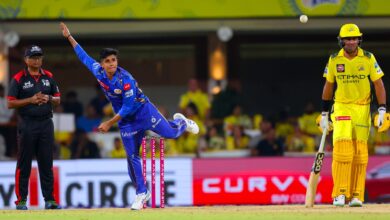Morocco’s FIFA World Cup run is a migration success story

In 2018, the Moroccan national football team was in a difficult spot. Under the tutelage of Herve Renard, a well-known face in African football most recently gaining prominence for spearheading Saudi Arabia’s shock upset over Argentina in the ongoing World Cup, they had reached a World Cup finals for the first time in decades.
To compete at a tournament of that standing though, Morocco did not boast of much individual talent. Yet, there was one who was begging to represent them. Munir El-Haddadi had been one of the most sought-after talents in Europe in the early 2010s – a Spanish national, with talent honed at La Masia, touted to be one for the future at Barcelona.
His father was a Moroccan native, having immigrated to Spain at a young age, and Munir identified with his North African roots. The catch was that he had represented Spain at all age-group levels, and had one appearance with the senior national team back in 2014. Morocco petitioned FIFA to have the rule changed, to make a minimum of three appearances the norm for being unable to switch national teams, and while it did take a few years, in 2020, FIFA relented.
Morocco could never really see the best of Munir. 2020, the promise had diminished and he never quite sizzled for the Atlas Lions. But in leading the charge to get the rules changed, Morocco showed how reliant they have been on migrants and naturalised foreign citizens for the success of the national team.
A result which saw Morocco reach the #FIFAWorldCup knockout stage for the first time in 36 years
See highlights from their 2-1 win over Canada on FIFA+
— FIFA World Cup (@FIFAWorldCup) December 1, 2022
That philosophy has led to their remarkable run at the 2022 World Cup, becoming the second African team to qualify for the knockout stage from an extremely difficult group. They took on European heavyweights Belgium and Croatia, both stacked with talent and experience, the third- and second-placed teams from 2018 respectively, and got four points out of the two games without conceding a goal. Their 2-0 win over Belgium was heralded as a shock around the world, but given the pedigree of their players and recent results, it didn’t seem quite as shocking.
Their formidable performances were built around players who have cut their teeth in European leagues, as citizens of other countries following ancestral immigration, and developed in youth set-ups abroad. A majority of their key players – like playmaker Hakim Ziyech, full-back Noussair Mazraoui and midfielder Sofyan Amrabat – were born in the Netherlands. Achraf Hakimi was born in Spain – joining Real Madrid’s youth set-up the age of six, while goalkeeper Yassine Bounou is of Canadian ancestry. Captain Romain Saiss was born in France, much like winger Sofiane Boufal.
As many as 16 of Morocco’s 26-player squad were either born or raised in a foreign country. Head coach Walid Regragui was himself born in Paris before captaining Morocco’s football team and later taking the helm. Turning to the diaspora is not quite unique to Morocco, given that over 100 players at this World Cup are representing countries other than that of their birth. For Morocco, however, the magnitude of their success adds to the significance of this trend.
At Mexico 1986, Moroccan football had been pathbreaking, becoming the first African team to qualify for the knockout stages of a World Cup. That was an achievement built around Moroccan – and extension African – identity. The success of this current side feels like a modern-day representation of that identity. A story of the dizzying second-generation immigrant experience, as national identities – so specific to a person’s cultural experiences and upbringing – blur at this World Cup.
16 of the 26-man squad for Morocco were either born or raised, in a foreign country
Most notable diaspora
Hakim Ziyech – winger – NetherlandsAchraf Hakimi – full back – SpainNoussair Mazraoui – full back – NetherlandsYassine Bounou – goalkeeper – CanadaRomain Saiss – centre back (captain) – France









